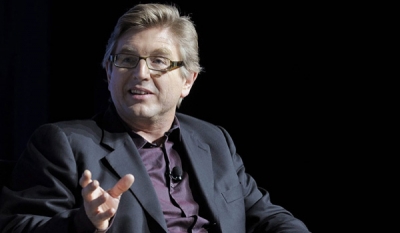Speaking to The Drum at the Web Summit in Dublin, Weed speculated that the industry as a whole will eventually make the shift to programmatic TV, but that the change will resemble the fast-moving progression that brands demonstrated in their use of social media.
“I think you’ll see the industry going into that [Programmatic TV]. I won’t make any specific comments about Unilever at this stage but you can see that as a potential destination that will grow and develop. We’re all experimenting and learning on programmatic right now and although I can talk with great knowledge about what’s going on, I can equally tell you where all the holes of knowledge are as well.
“I think we are in a fast-learn, fast-apply [environment] and where is it going to end? I don’t know. Would you have predicted how brands would engage on Facebook five years ago? The answer is absolutely not.
"So the rule books we wrote three years ago about how to market brands on Facebook are completely irrelevant today and neither Facebook nor ourselves knew how it was going to evolve, and I think that’s the respect we need to have with this whole new area of marketing; you’ve got to be flexible you can’t put in five year plans and stoically stick with them.”
Weed added that programmatic will have the same effect on media that computerisation had on the financial district which saw men shift from “waving sheets of paper” to monitoring rows of computer screens, but that the current spend is still small across the industry.
Referring to previous speculation pointing to the death of TV, Weed commented that it has been “prematurely” talked about and argued that all video content is “a square on your wall or in your hand” with a two dimensional moving picture. He referenced the amount of video content now available across a variety of platforms as his case in point.
“People talk about TV being dead but what is TV? TV is a square screen with a 2D moving picture, and a 2D picture has never been so alive; just look at all the video out there…For a marketer the moving picture is alive and well and that being part of a mobile platform is very exciting.”
The internet of things (IoT) will see marketing return to its “noble” state, according to Weed, who said that the connectivity that comes with IoT will allow brands to market “with” people as opposed to at people.
However the chaos that has infiltrated the market due to the growth of mobile and data has led the industry to be “confused” and marketing is yet to catch up, according to Weed.
“I think there will be a real premium on finding ways to simplify the complexity and offer real value to people in terms of entertainment and content and marketing is not geared up for that. We’re increasingly getting there but we were very much in that ‘marketing to people’ with broadcast , I think we’re now in a 'marketing with people'.
“With our big brands up to 20 per cent of our content now is user generated and we’re moving brands to marketing for people as far as trying to get into a much more purposeful position and making marketing noble again, back to that core of what marketing started out to be before the consumerism of the 80s.”
On brand trust, Weed voiced the opinion that while the internet has led to brands being “undermined” due to the transparency it brings – such as ethical issues around the production of clothing – brands are actually trusted by consumers because of the quality of product they have come to know and experience.






















